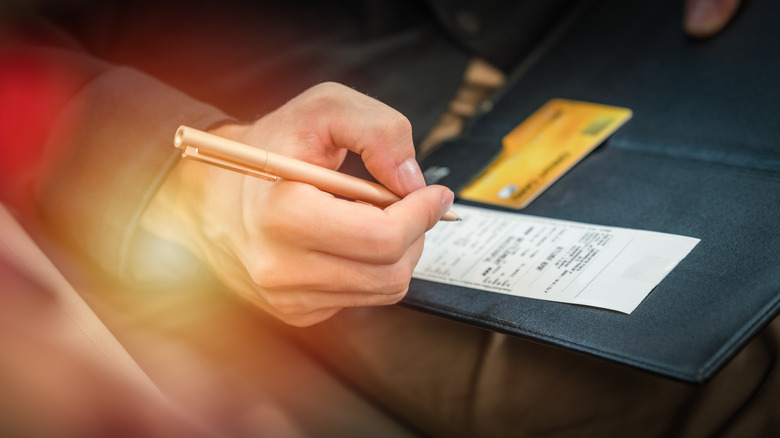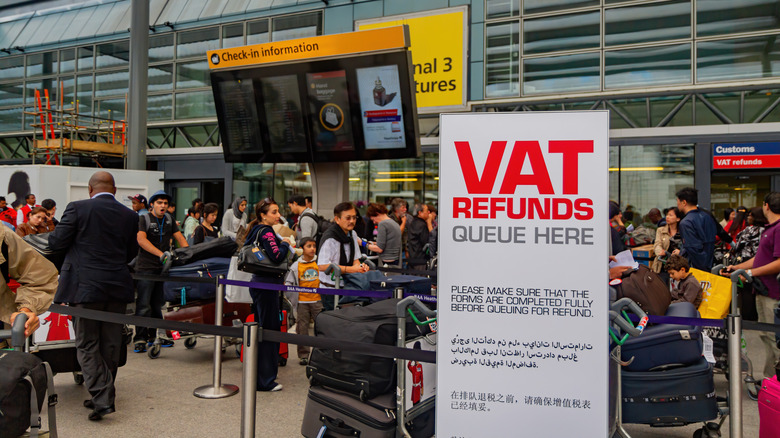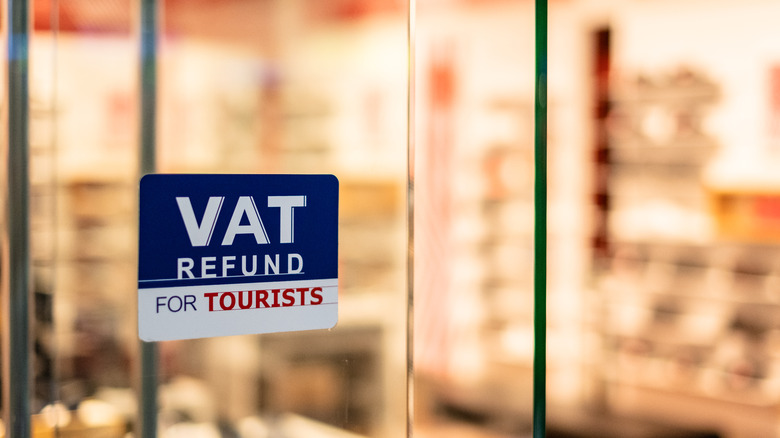Why You Should Consider Saving Your Receipts When Shopping For Souvenirs
For the most part, receipts are a nuisance. Unless you need to safekeep them for tax purposes, they're simply pieces of paper that function as proof that you've purchased a product or service. They're tangible reminders of how much you've spent on something, like splurging on a ridiculous $15 on fancy coffee or overpaying for a pair of shoes.
More often than not, it's better to throw away or shred receipts you have no use for — considering how most of them were found to be quite toxic. According to a Skip the Slip report, many paper receipts contain harmful chemicals that can cause adverse effects on one's body. If you really need a receipt for tax and money management, it might be better to ask for a digital copy instead. That way, you can cut back on waste, and the receipt can linger forever within the depths of your phone or computer for later reference.
It's a different story when it comes to travel, though. If you're fond of shopping abroad, especially in countries that offer VAT refunds, you'll benefit from keeping paper receipts — at least right up until you leave the country. You may be surprised to know that those pieces of paper, no matter how pesky they can be to organize, can save you money and even help you fly past customs agents.
VAT refunds
Fancy shopping during your overseas travels? If you're the type to go all out with your spending when you travel abroad, particularly in countries that charge value-added tax (VAT), you can recoup some of that money with the help of receipts. Over 170 countries charge VAT on top of retail prices of goods and services, and if you're a tourist, there's a huge chance that you can get a refund on the VAT before — and sometimes even after — you fly back home. You just have to present receipts.
Note that these refunds normally don't apply to food, accommodation, transportation, and services, but all other purchases are usually eligible. You may not get a refund on a baguette you bought from a French bakery, but if, say, you purchased clothing and accessories from a store and have met the minimum spending requirement for a VAT refund, you'll be able to get a certain amount back. Not all stores offer refunds, either, and minimum purchase requirements vary from country to country, so it pays to ask store clerks before going on a shopping spree and read up on relevant VAT rules before your trip. For instance, France has a €100.01 (about $150 USD) minimum, and Italy has €154.94 (approximately $230 USD) minimum. Meanwhile, purchases made in Japan have to be at least ¥5,000 (roughly $35) to be eligible for a VAT refund, and South Korea has a minimum spending requirement of ₩30,000 (around $23).
Claiming your reimbursement
Before anything else, it's important to confirm whether a certain store offers VAT refunds. The minimum thresholds are also not cumulative and instead apply per transaction, so a single purchase must meet the minimum spending requirement to qualify for a refund later on.
Now, when it comes to claiming said refund, the process also varies per country and per store. Some establishments even process refunds automatically. But within the EU, at least, the European Commission notes that most shop clerks may require you to fill out a form and then — along with the receipt or invoice — return the form so you can present it to customs officers, who will then stamp it. Without showing proof of purchase, they won't be able to stamp your refund form, rendering you unable to claim a refund. You then mail your refund form to the address the shop provides when you return home. The good news is bigger airports have counters that allow you to claim your refund right away. Countries like South Korea even have self-service kiosks that yield refunds like ATM machines in exchange for scanned passports and receipts. It's also worth noting that keeping receipts handy can speed things up when customs agents question your purchases.
It may seem like more trouble than it's worth, but hey — at least you'll be getting your money back. In this day and age, every dollar counts.


